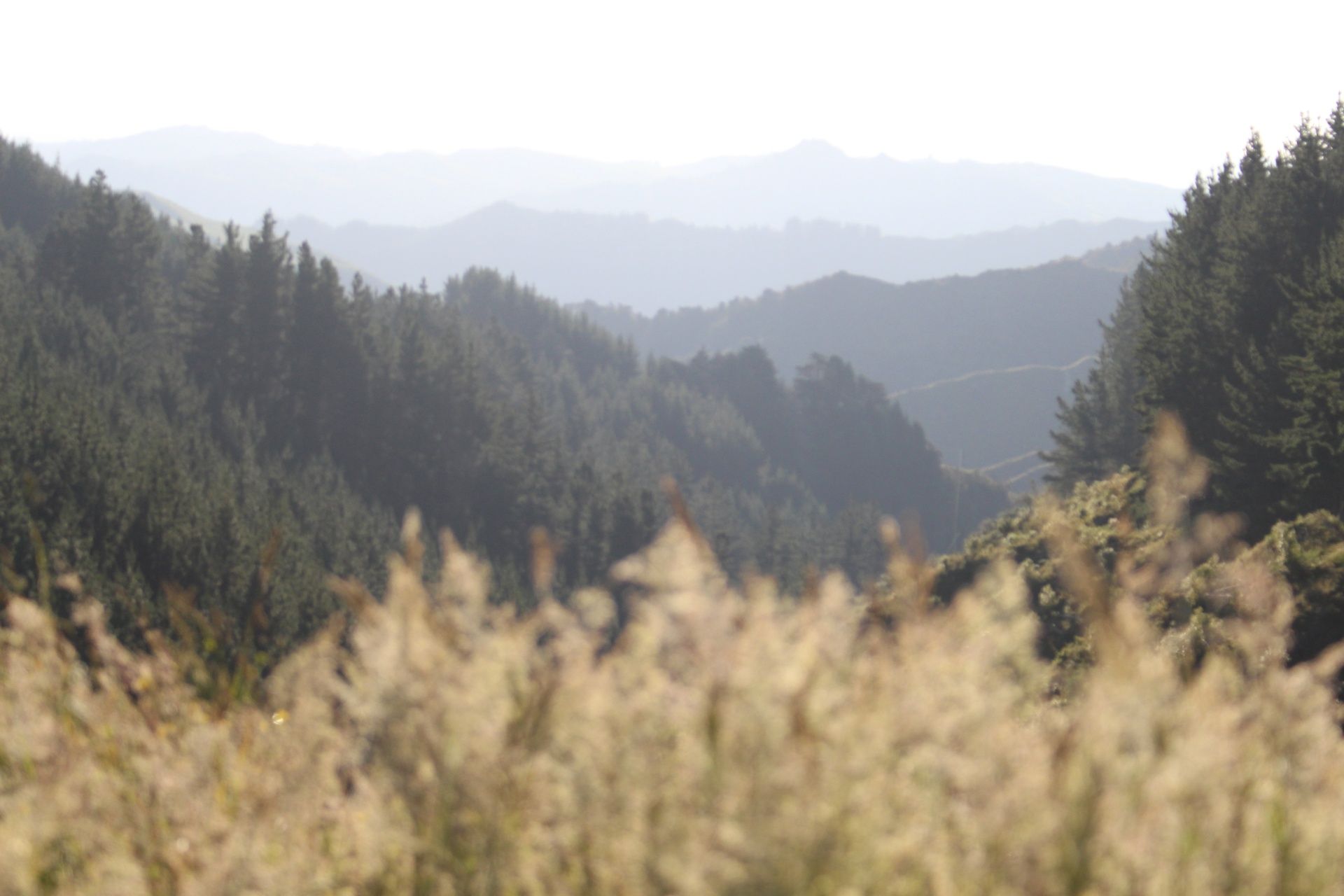My Journey From Land Loss to Business Activism
My Journey From Land Loss to Business Activism
By Iulia Leilua:
There’s a lump that wells up in my throat sometimes when I pass certain places in my hometown. Growing up in Taumarunui with a Samoan father and Māori mother, I wasn’t educated about racism or diversity. But inequality sat like an invisible blanket over most of the Māori I knew, an uncomfortable truth I only now have the ability to analyse and articulate.
Although my immediate whānau (family) from Taumarunui were working class and often uneducated in the Western sense, the biggest asset we had was land passed down through the generations from our tūpuna (ancestors). As a child, I took it for granted that I could roam free across these lands, play with my cousins in our trees, pick watercress from our spring fed creek and eat plums, pears and apples from our massive communal gardens.
We’d spend hours looking for eels in the Pongahuru Stream, climb the dangerous cliffs overlooking the Whanganui River – with no adults around of course – or go swimming in the river. It was comforting sitting in the long grass on our land that no Pākehā (European) had ever owned, listening to the cicadas and watching the sun set over the Kururau hills. When it was time for tea, I’d hear my Mum in the distance calling for me to go home.
It sounds like a carefree childhood right? Well it was mostly, but unfortunately it didn’t last long. In fact things soon took a turn for the worse.
The day they locked the gates on us.
One day when I was about ten, we were told we weren’t allowed to play on our lands anymore. The reasons weren’t clear to me at the time but rates arrears, ignorance about council processes, family dysfunction and squabbles about how to deal with the situation saw our lands pass into the borough council’s ownership.
The whānau orchard and gardens that fed our people at Te Peka Pā became a pony club. Our lands above and below Taumarunui Hospital were subdivided and in some cases, my cousins started renting from the new owners.
_Lnjec6Q.jpg) At the entrance to our old traditional gardens.
At the entrance to our old traditional gardens.
Other local Māori families managed to hold onto their lands because of educated or visionary family members who were good leaders, but we weren’t so lucky.
As I watched fences being built around our whenua (land) and gates locking us out, I realised an important lesson – knowing the system and having a united whānau vision on how to deal with that system is crucial.
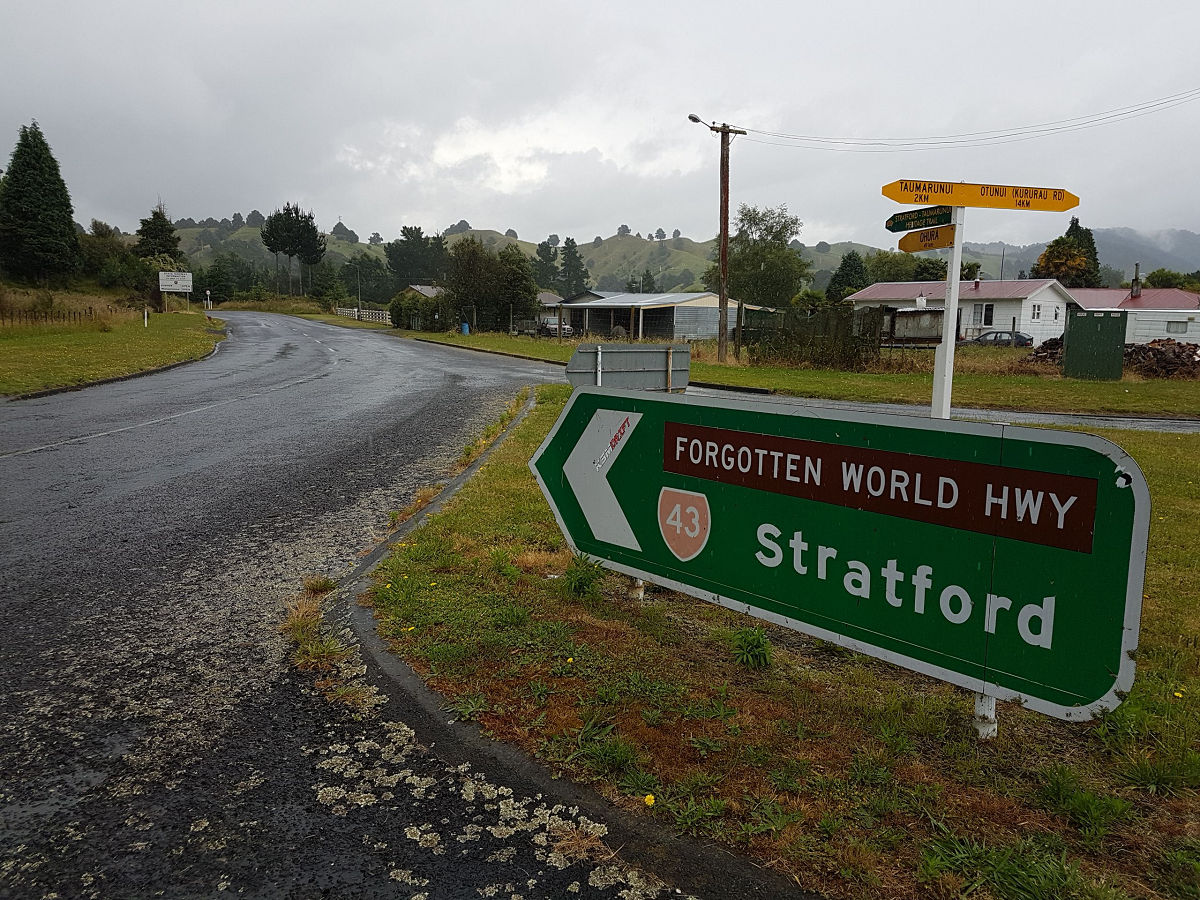 Corner of River Rd and Kururau Rd where more of our former land has been subdivided.
Corner of River Rd and Kururau Rd where more of our former land has been subdivided.
Unpacking the impacts of colonisation.
Let me elaborate. That experience shaped my adulthood. It’s the reason I became the secretary for our Iwi trust for twelve years, to learn about the Resource Management Act, the Ture Whenua Māori Act and the systemic alienation of Māori land and water rights. You learn a lot sitting through hui with our people and with Crown agents, watching peoples’ styles of leadership and dealing with the Treaty settlement process.
We have amazing, resilient, hardworking, proud hapū and Iwi, but the most frustrating thing is our inability to agree and unite under a common vision. Why is that? Firstly, a lack of good leadership and succession planning. Secondly there are gate keepers who hold whakapapa knowledge back, favour particular whānau or exclude people from the decision-making table.
Eventually I got tired of being in grievance mode, the internal dynamics and fighting over the past. Being perpetually reminded of our land losses made me angry and it wasn’t helpful for my future. I’d already lost most of my immediate family to the flu epidemic, diabetes, cancer, heart attacks, tuberculosis and diseases of the poor. It was time to change tack.
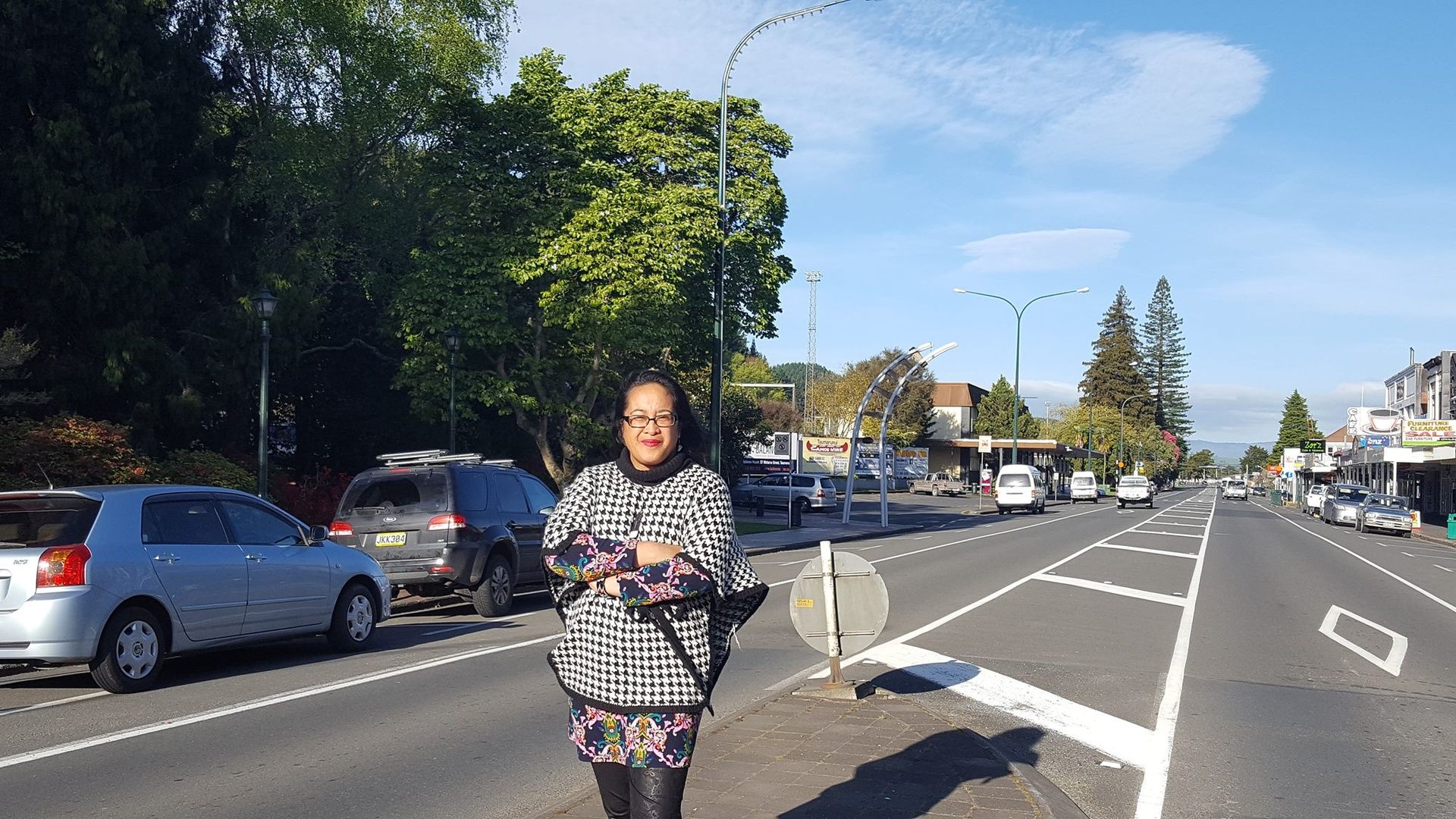
Above: The main street of Taumarunui.
Below: Pōwhiri for Waitangi Tribunal at Ngapuwaiwaha Marae in Taumarunui 2008.
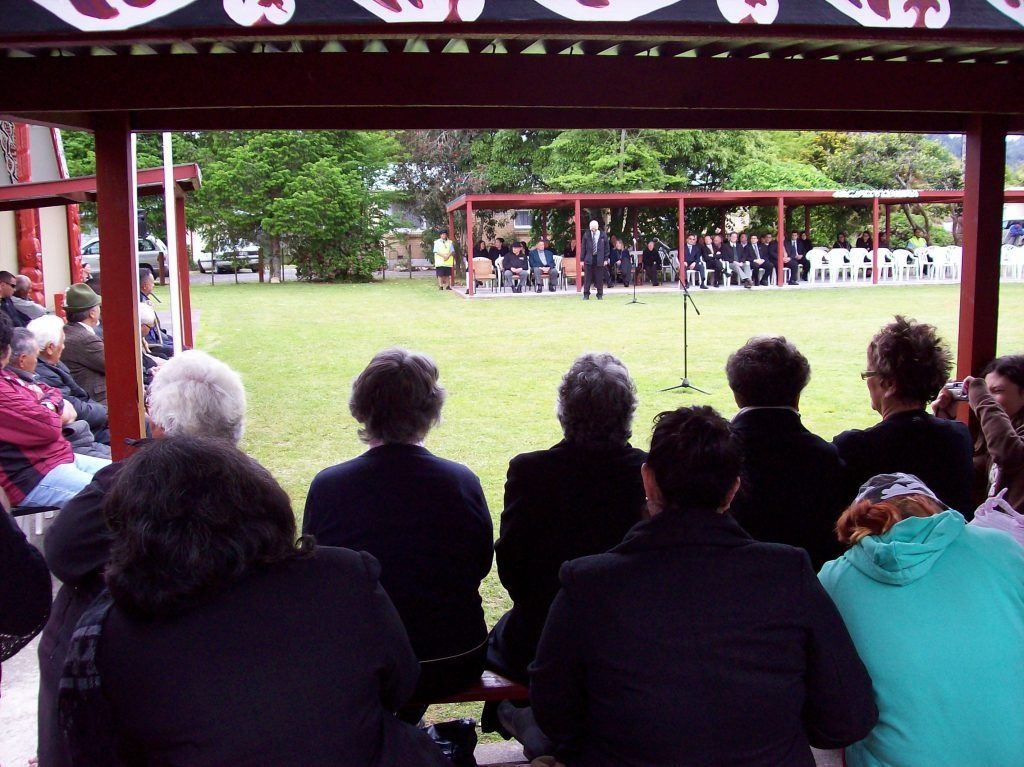
Escaping grievance mode
Giving myself permission to let go of Iwi politics for a while, I thought, “Where can I work in a kaupapa Māori space that won’t be boring or filled with drama?” It was during an Auckland shopping trip that I spied an opportunity when I met a heavily pregnant reporter who worked for Native Affairs at Māori Television.
Knowing she was about to go on maternity leave I wasted no time in ringing the show’s then producer, Sharon Hawke, for a job and was hired immediately.
It wasn’t a boring job but man was there drama. After ten years of producing more than 120 Māori current affairs stories, I think you’ll agree with me that I gained a deeper understanding of the Māori world.
The stories that I was drawn to were land and environmental issues and local government relationships with Māori. It was a revelation being able to talk with Māori up and down the country who had similar experiences to my family. I understood why my family were the way they were and how we became tenants in our own lands.
It was liberating uncovering injustices against Māori but there was just one problem with this. Railing against the system without finding lasting solutions from the people I interviewed started to feel like grievance mode again. How do I know? Year after year, the injustices were the same and the system was the same, just with different Iwi and whānau around the country.
That’s when it hit me – why not come up with a solution myself and turn it into a business?
Creating systems change to overturn injustices
Six years ago I took the leap and launched ‘CulturePRO’ - a two-day Māori and Pacific Cultural Engagement Masterclass at Ōrākei Marae. My biggest challenge was knowing how to sell the idea to people who needed it but were unaware they needed it or were resisting it.
The other challenge was feeling unqualified to put myself out there as a cultural communications expert and being judged. I soon got over that when I looked at my amazing life experiences and the decision to become an indigenous business activist.
CulturePRO morphed into an online course but people were overwhelmed with it because of the copious amount of info I squeezed into it. Just like trying to put a whole hangi into a sandwich – no one was ever going to be able to consume it all, no matter how delicious it tasted.
We’re now breaking the programme down into small, manageable chunks that take people across the continuum, from basic cultural awareness to cultural intelligence. Recently my daughter Ngapeita joined the company.
Our mission is to help subject matter experts and professionals build bridges to connect with Māori and Pacific stakeholders so that they develop empathetic, trusting relationships and disrupt systemic racism and unconscious bias resulting in mutually beneficial outcomes.
Conclusion
That grief that I feel when I pass our old whānau lands will always be there. I hate to think how it was for my tūpuna in the 1860s onwards when they suffered huge land losses through colonisation and government laws. Inequality still sits like a heavy blanket over most of the Māori I know here, it’s just much more subtle.
I thank my Christian faith for helping me get past living in grievance mode. And if there’s one thing that I pray for it’s this: I hope my people will not be slaves to the same system when I’m a kuia – on the benefit, renting, lacking in education and disconnected. I hope that we can unite under a common vision and agree on solutions that will move the needle for us in an ever uncertain future.
The Culture and Design Lab empowers workplace leaders to create social cohesion at work. We use indigenous knowledge, design, and strategy to foster inclusion and belonging in the workplace.
